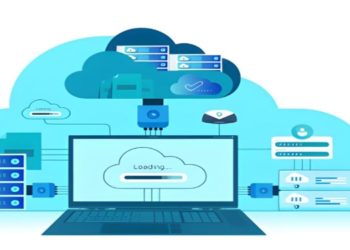In the fast-paced world of data-driven decision-making, the synergy between DevOps and Data Science has become a crucial factor in achieving business success. DevOps, with its emphasis on collaboration, automation, and continuous improvement, has extended its reach beyond software development and found a natural fit in the realm of data science. In this article, we explore how DevOps practices are bridging the gap between development and data analytics, revolutionizing the way organizations extract insights from data.
The Traditional Divide Between Development and Data Science
Traditionally, development and data science were separate domains within an organization. Developers focused on building applications and services, while data scientists analyzed data to derive insights. This separation often led to silos, slow feedback loops, and challenges in aligning data analytics with business goals.
DevOps, born out of the need to break down silos and improve collaboration, has now extended its principles to data science, creating a bridge between these two crucial functions. If you’re looking to strengthen your DevOps teams or bridge the gap between data science and development, you can explore potential candidates at https://lemon.io/hire-devops-engineers/. This collaboration is a testament to the power of synergy in achieving comprehensive and effective solutions in the modern tech landscape.
DevOps Principles Applied to Data Science
- Collaboration: DevOps emphasizes cross-functional collaboration. Similarly, data science benefits from closer collaboration between data scientists, developers, and domain experts. Bringing these teams together fosters a better understanding of business objectives and ensures that data-driven insights align with organizational goals.
- Version Control and Reproducibility: Version control, a core DevOps practice, is equally relevant in data science. Tracking changes in data, code, and models ensures reproducibility and transparency in analysis. Tools like Git and platforms like DVC (Data Version Control) enable versioning and collaboration in data science projects.
- Automation: Automating repetitive tasks is a cornerstone of DevOps. In data science, this translates to automating data preprocessing, model training, and deployment processes. Automation reduces manual errors, speeds up analysis, and enhances overall efficiency.
- Continuous Integration and Continuous Deployment (CI/CD): In DevOps, CI/CD ensures rapid and reliable software releases. In data science, CI/CD practices enable quick iterations in modeling and analysis. Automated testing and validation pipelines ensure that changes in data or models are thoroughly tested before deployment.
- Infrastructure as Code (IaC): Applying IaC principles to data science facilitates the provisioning of consistent and reproducible environments for analysis. Tools like Docker and Kubernetes provide containerization and orchestration, ensuring consistent environments across development and production stages.
- Monitoring and Feedback Loops: DevOps emphasizes monitoring applications in production. Similarly, data science models require monitoring to detect shifts in data distributions and model performance. Feedback loops enable timely updates and retraining of models.
Benefits of DevOps in Data Science
- Faster Time-to-Insights: DevOps practices accelerate data science projects by streamlining processes, reducing bottlenecks, and enabling quicker iterations in model development and deployment.
- Enhanced Collaboration: DevOps principles encourage communication and collaboration between data science and development teams, fostering a shared understanding of project goals.
- Reduced Risk: CI/CD practices minimize risks associated with deploying faulty models or introducing errors into production systems, ensuring that insights are accurate and reliable.
- Scalability: Applying DevOps practices to data science ensures that data pipelines and analysis workflows are scalable and can handle larger volumes of data.
Challenges and Considerations
Implementing DevOps in data science comes with challenges:
- Cultural Shift: Overcoming the traditional separation between development and data science requires a cultural shift and alignment of goals.
- Data Governance: Ensuring data privacy and compliance becomes critical when data is shared between teams. Proper data governance practices must be in place.
- Tooling and Skills: Data scientists may need to adapt to new tools and practices, and developers may need to understand data science concepts.
Conclusion
DevOps in data science represents a transformative shift in how organizations leverage data to drive business value. By breaking down barriers between development and data analytics, DevOps practices enable faster, more accurate insights that directly impact decision-making. As organizations seek to derive meaningful insights from their data, the collaboration between DevOps and data science is a partnership that paves the way for innovation and success.
David Prior
David Prior is the editor of Today News, responsible for the overall editorial strategy. He is an NCTJ-qualified journalist with over 20 years’ experience, and is also editor of the award-winning hyperlocal news title Altrincham Today. His LinkedIn profile is here.


![7 Best POS Software in the UK [2026 Edition]](https://todaynews.co.uk/wp-content/uploads/2026/02/7-Best-POS-Software-in-the-UK-2026-Edition-360x180.png)





















































![7 Best POS Software in the UK [2026 Edition]](https://todaynews.co.uk/wp-content/uploads/2026/02/7-Best-POS-Software-in-the-UK-2026-Edition-120x86.png)

![7 Best POS Software in the UK [2026 Edition]](https://todaynews.co.uk/wp-content/uploads/2026/02/7-Best-POS-Software-in-the-UK-2026-Edition-350x250.png)

















